When I learned about photography for the first time, it was in my high school’s darkroom with a fully-manual Pentax K1000, which was at one time possibly the most prolific and popular SLR camera on the market. Why, you ask? Because it was built like a brick (which is mainly what makes them a popular decisions for school boards around the world), have a fast maximum shutter speed, and don’t have very much else. After all, there is nothing more detrimental to the learning process than distractions such as buttons, knobs, and menus. Most people today are learning photography on entry-level DSLRs, which, while more basic than a fancy high-end digital, are still needlessly convoluted and, worst of all, easy to use!
When you learn something new, what is it you want to know first? Most people would probably agree: the basics. Manual cameras are nothing but basics, and they will start your education from the very foundation, leaving you no choice but to meditate on composition and the exposure triangle of aperture, shutter speed, and ISO. In this video, the infamous Kai W explains why he believes that the art of photography is best learned on a manual film camera:
To recap his 10-point argument, everyone should learn on a manual film camera because:
- It’s so old-fashioned, it makes you look cool. Enough said.
- Film is unforgiving – it demands hard work, as well as some trial and error, to get a good exposure.
- No automatic settings. You must become familiar with the principles of exposure, or suffer blank frames.
- Exposure – If your camera is of an age before light meters were invented, you may have to use the “Sunny 16” rule of thumb to gauge what settings you should be using (in full sun, your exposure will be f/16 at a shutter speed equivalent to your ISO – 1/100th sec at 100 ISO, 1/400th sec at 400 ISO, etc).
- Manual focus – you must consider which part of the picture should be in focus, rather than letting the camera hook on to some random spot.
- Nobody will steal it. Even previously high-end film cameras aren’t worth much anymore.
- The ISO isn’t auto. With digital, the effect of ISO has been largely forgotten by many, but because you have to use the same ISO throughout a roll, you have to come to understand its role in your exposure.
- Slow you down. Manual settings, as well as the consumption of valuable film, forces you to put more thought into each shot, which has obvious positive effects on the learning process.
- Cheap gear – everyone thinks film is dead, so you can pick up your equipment for a song, or sometimes for nothing at all.
- No need to upgrade – there are very few film cameras in production anymore (though there are some), leaving you to think about your photographs instead of your equipment. Not to mention that in the days of film, cameras were built to last a lifetime, rather than the short wait until the company’s next release.
More often than not, when a person buys a new DSLR, they use it on auto mode indefinitely. The pictures they produce are great, and they feel satisfied with that. This is a fine course to take for anyone who just wants to preserve memories, but if you’re really serious about learning how to make a great image, it won’t be long before you’re watching YouTube tutorials and bugging your local camera store clerk for advice on how to go further with your photography.
For those who are really serious about understanding these machines, the modern DSLR, with all its complex bells and whistles, can be convoluted and difficult to understand.
Successful images may make you feel good about yourself, but it’s through failure that we all learn best. The constraints imposed by manually-controlled film photography force the mind into a place of problem-solving the deep intellectual involvement, which ramps up our brain’s ability to absorb information.
By limiting our possible shots from the thousands down to a 24-exposure roll of film, we have no choice but to consider our every move, our every shot; to think critically about what we have done in the past and what we should do in the future, and to engage our minds in the acquisition of a valuable new skill.
Like This Article?
Don't Miss The Next One!
Join over 100,000 photographers of all experience levels who receive our free photography tips and articles to stay current:
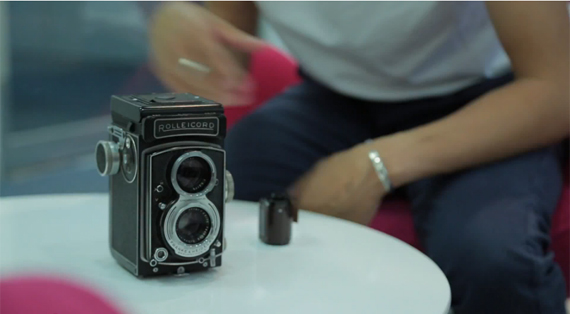
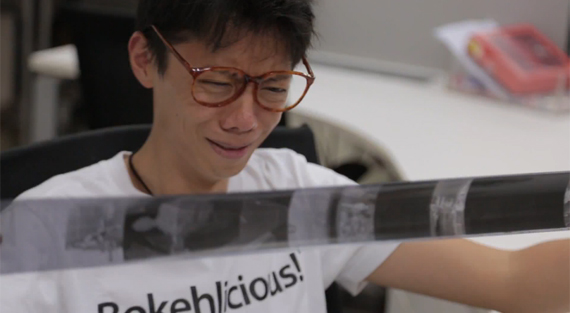

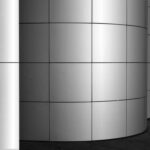

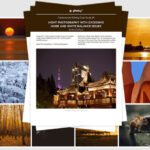
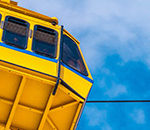
Even though I use both, my film cameras are my workhorses. I have one digital, that I use rarely, as I am no fan of digital. Digital limits your creativity, and your skill. Remember, even in raw, the camera tries to correct everything you do, so all you have to do is get close, and you can come out with a good image. With film, what you do, is not corrected, so you have to have your skill much higher, plus you can shoot off the lens, where as you cannot with digital.
With digital you are a computer tech, and not a photographer. Even though five of my cameras are AF, Two are strictly manual, and I shoot everything in manual. Digital is good for personal shooting, but for a person making a business, it is a worthless, film there is the only way to go.
I am so sick and tired of people claiming film is expensive. What the hell is cheap about a digital camera? Not a frigging thing. You spend thousands of dollars for a camera and lens and claim that is cheaper than film? Where the hell did you go to school – Idiot U? And that isn’t even the end of the spending – you need a computer which has to be updated every two-three years, programs to do your ‘processing’ that have to be updated every year. All this to get to spend hours in lightroom and photoshop. The end result is just another image that looks like every other frigging image. As a Vue artist, I can come up with better looking images than what I see from a digital camera.
Chauncey, before you call anyone dumb, learn to spell. You made yourself look like the idiot you are.
I fully agree with this article. There’s no better way to learn ANYTHING than having to do it at the very lowest level. Both digital and analog have their advantages and disadvantages. Frankly, I’m tired of all of the ‘film vs. digital’ debates. This is as old as the ‘Sammy vs. Dave’ debates. I’ve been using film cameras for thirty years and I’ve been using digital cameras for eight. I can say that each have their purpose in life.
I wish all of the one-sided, single-minded people would grow up and realize that not everything is better by being digital. Just realize that our digital cameras have their faults just as much as our analog cameras have their own.
Thank you. Can this be played in Time Square? or given with every new camera purchase???
Having started in 1971, myself, I don’t have this particular problem, so I’m glad I grew up when I did. That said, I wholeheartedly agree that, if digital photography is your only experience of photography, you really should learn to shoot film and even learn to process and print what you shoot. It will go a long way toward understanding everything you need to know to be a complete photographer.
Nothing can beat waiting a couple days to see if your last 24 shots were any good.
While I understand both sides of this debate, i have actually used both.
Growing up, I had gotten a camera, and it was film-based because digital wasn’t around, or if it was, it wasn’t within my reach financially. One thing I learned at this stage: Patience. Being able to wait for your shot. It’s what you see in your mind as the moment you’ve set out to capture.
This debate is the same one when it comes to most things. Examples? Sure!
DJing:
Using vinyl turntables vs. laptops and controllers
Drawing:
Pencils & Pens vs. Wacom tablets or an iPad
There’s plenty more, but these are the two that stand out most at the moment. When I set out to become a DJ, I was told:
“Get some cheap Gemini decks, learn on those, then graduate to Technics 1200’s.”. I did just the opposite, and was a better DJ because of it. I saved my loot, bought my Tech12’s, and learned on the equipment my heroes used. I got good enough to open and spin alongside some of my mentors, and that was validation enough for me that I had done the right thing, and made the right moves.
This is true with photography (and almost anything else) as well. I consulted with some people whom I hold in high regard for their style, and ability to capture those oh-so-rare moments, and I save my cash to get the tools I need, to produce the pieces I want. My mentor in photography, Sean, said something to me before I began my journey into photography:
“Photography is 80% talent, and 20% tools”.
How true. How do you get better? By going out, and taking photos, and learning from your mistakes, and I do. Do that, and this debate becomes a moot point
My $0.02.
Sincerely,
Brian.
Utter bull crap. The reason I never got into photography was cause of all that iso etc. First got excited again when Kodak had the instamatic. I take tons pf pictures and sold quite a few ever since I got first digital. Still don’t know much about aperture and all that crap. Click…that’s all required. If picture is crap…Delete. Still haven’t figured why some plugin programs have “ADD GRAIN”. It’s like records…who wants to listen to stupid scratchy records when digital is so pure..but I digress. I feel much better now..
Author, go back to the 21st century !!!!
The first time I used a DSLR, I used auto settings for all of 30 minutes because it stripped all creativity away from me during processing. Therefore, I almost never use it.
Miki…I like you/watch your videos but, this treatise is one of the dumbest things that I’ve read.
Your suggesting that the “I want it now” generation succumb to “doing it now and waiting” until later to see the results.
That just flat out is not gonna happen…go digital camera to start with.
As you point out we learn by failure, and seeing our failures quickly is a better/faster way of learning than is waiting several days to see them.
DSLR does not mean “auto”, it is to do with the digital files being multiple and the lcd screen. But still to say it makes it easy to use is a very arb thing to say. The point of technology is to help you along. Plus having the best equipment to make it “easy” does not mean taking better photographs will be easy, so it contradicts itself
Turning off the automatic functions, sticking with one ISO setting, all this can be done with a digital camera. One key point with digital is that you get instant feedback. You can try multiple settings and learn from your mistakes quickly. I think this outweighs all the other factors mentioned. Also, on cost, film & developing it are *not* cheap, & the cost of that inhibits experimentation & learning. The same would be true in understanding the digital “negative” in the field & the digital “print” in post. Digital equipment cycles to new generations rapidly, & this also means that the aspiring person can find used gear for less money.
Sorry, but I don’t think the arguments for film hold up very well.
If something is easy, it’s because you’re not learning anything. This article is about training yourself in the art and method of photography, in which “auto” modes play no part.
“worst of all, easy to use!”
Umm yeah because technology is supposed to make things more difficult? And all pcs and macs should be taken away for all kids learning to use computers, they should be given Guinea fowl to pluck and learn how to make ink, before learning the typewriter to be able to type on a computer?